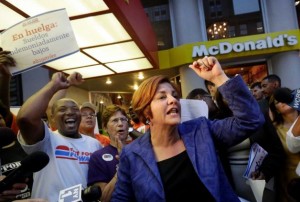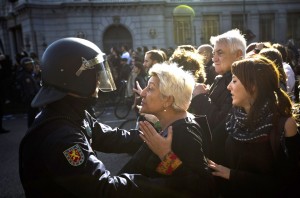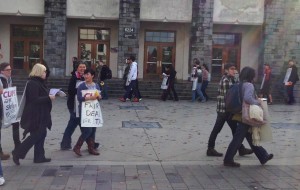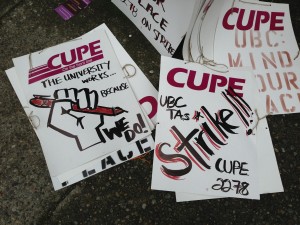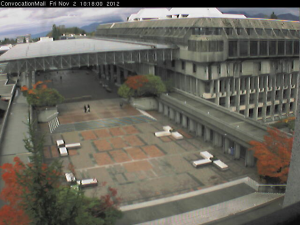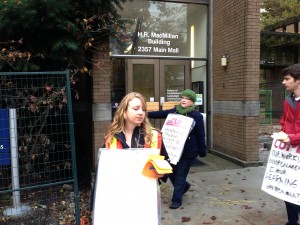In a show of solidarity today, 150 signatories submitted a petition to University of British Columbia President Ono to account for a decision to disregard Dr. Samson Nashon‘s application for Dean of the Faculty of Education. The petition calls for the UBC President to correct procedural and evaluative oversights of an Advisory Committee (16 members):
Petition for addition of Dr. Samson Nashon to the Shortlist for Dean of the Faculty of Education
(November 21-25, 2020)
As the Black Lives Matter movement called higher education practices into question, President Ono communicated to faculty, staff, and students on June 1st, 2020: “I encourage you to think about the role you can play in fighting racism.” This petition is in the spirit of that fight.
We are concerned with the process of finding a new Dean of the UBC Faculty of Education. The President’s Advisory Committee charged with this task seems not to have taken into account the groundswell of support for Dr. Samson Nashon. Apparently, the Committee ignored the overwhelming evidence in his support from the process of shortlisting. Up through a communication indicating Dr. Nashon’s exclusion from the shortlist on November 20, over five months have passed since the Advisory Committee’s last communication to the faculty, staff, and students (on June 9, 2020). Short of a problematic election for faculty members on the Committee (only 4 Committee members out of 11 were voted in by the faculty members), faculty and staff had little input into the Committee’s composition. Consequently, the President’s Advisory Committee excluded ALL African Canadian faculty, staff, and students.
Colleagues reviewing Professor Nashon’s application for this search for a Dean of the Faculty of Education and faculty, staff, and students recommending him to the Advisory Committee via Boyden Vancouver know full well his competitive qualifications. They meet and exceed those of many Education Deans across Canada, including UBC. Why were these qualifications seemingly overlooked? Dr. Nashon was encouraged to apply by Boyden, but was then excluded from the shortlist. What does the recruitment of an African Canadian applicant mean, if the goal is merely to enrich the pool of applicants for the sake of optics?
For too long and in too many instances, UBC senior managers have created Advisory Committees that excluded and under-valued well qualified African ethnic and diasporic applicants, who are internal to the university, for leadership positions across UBC campuses. These practices account for the lack of diversity in the demographic of senior and middle management ranks in Education and elsewhere on the two campuses.
Given this, we submit this petition requesting Professor Samson Nashon be added to the shortlist for the Dean of the Faculty of Education Search.
Signed: 150 Signatories

 Follow
Follow